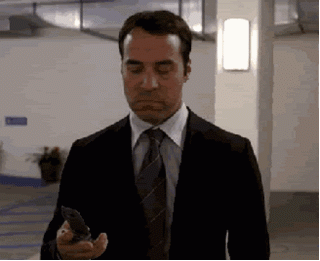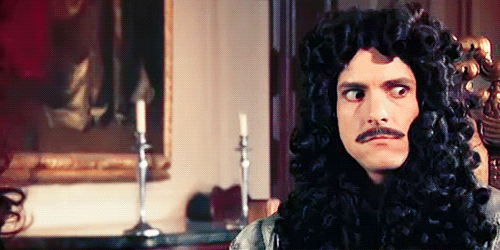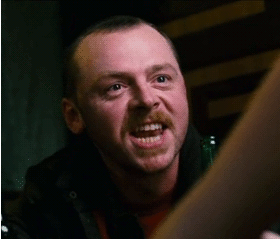I'm coming off a nasty bout with a cold and a November 2013 that pretty much blew, so I don't have a whole lot of clever musings to share. But something did happen last week that I thought I'd pass on.
Dane Arts, formerly the Dane County Cultural Affairs Commission, grants out money to local arts organizations three times a year (though soon it will be two). The last cycle, which was due October 1st, had decisions made about funding last week. MTM applied for our upcoming revue "You're The Flop", which is an original piece we're writing about the history of musicals that "flopped" on Broadway, and how commercial success doesn't always equal artistic success.
Anyway about 5:30 Thursday night my Facebook feed had a few posts show up indicating "Yay! We just got a call from Dane Arts! We got $X,XXX for our project! Hooray! Huzzah!"
I immediately pulled out my phone. A missed call! Checking my voicemail I heard the message:
"Hello Meghan, this is Doctor Shandley's office reminding you that you're due for an eye exam. Please call us at your earliest..."
.
What I did next was kind of a rookie move. I lost my cool. After a devastating month this just was the straw that broke the camel's back. I immediately began to doubt myself, my contribution to the local arts scene, my ideas, my financial planning capabilities and my ability to sell people on my ideas. I was passionate about this project,and I thought it had showed in my proposal. I followed the rules. My budget was incredibly detailed. I answered the questions thoughtfully, clearly outlined our project goals and evaluation tools, and asked for an appropriate amount of money relative to the project's budget. And it was a really unique idea. So why? Why hadn't they funded it?
In my somewhat irrational mindset I decided it was clearly because I suck at life and the panel did not believe in what I was doing. (We'd gotten many grants before but that wasn't important right now.)
I arrived at a place that I come across probably once or twice a year: The "what's it all for?" As Mama Rose sings in Gypsy: "Why did I do it? What did it get me? All your life and what does it get you? Thanks a lot and out with the garbage." Why bother? Eight years of getting kicked in the gut time and again. Why?
I thought about 2011, a year in which we'd had a poor showing for a show that meant the world to me, john & jen. I was damn close to shutting it down at that point. Perilously close. But then we started work on a show called The Glorious Ones, about a commedia dell'arte troupe in the 16th century and their passion for what they did. And working on that show (which did do well), pulled me out of one of my deepest ruts. A lyric goes like this:
I've gone without bread. Lived close to the bone. Got into deep water and sunk like a stone. But now and again I have risen and flown like a kite. And God help the people who don't get the joke. Who won't risk a failure, who won't go for broke. I dare them to stand in my boots in the mud for one night! But do what they do, or say what they say, I'd rather be me at the end of the play. For what is this life but the beauty of improvisation?When I started this company I was an artist and not a business person. (As you may have noted, occasionally my reactions dictate that I might have a touch of the dramatic in me.)
While I am incredibly thankful to have acquired so many skills on the business side of this, at moments like these I'm glad to have an artist's heart, and a connection to music and theatre that reminds me of why I do what I do and inspires me to find solutions.
I've improvised so many times in this crazy endeavor. Like the time I was told we'd have a piano for a concert and we didn't so we went knocking on the door of a church down the street and asked to borrow a keyboard which we then hauled down Jenifer St. Or the time my stage manager passed out backstage and I ran the light board on a show I'd never run the board on before at an incredibly important special performance. Or the thing with the hay. Or the bathtub. Or the ducks. (Oh yeah, haven't gotten to that yet.)
So last week, after a tirade and my Associate Artistic Director talking me off the roof of my house, I pulled myself up, dusted myself off, put down the wine and started planning how we would raise the money we needed. (I may have picked the wine back up a couple of times). I remembered how many times funding had fallen through before and how, somehow, we'd always made it work. Wallowing at this point would do me no good. It was time to move to plan B.
The truth of the matter is that while we must be so careful as arts managers, and think as business people, we are all a little nuts to be doing this in the first place. The principles of business do not always apply in the arts. We don't measure our progress purely on a balance sheet. When things get rough we have a very real, passionate, inexplicable NEED to keep going. So, we improvise.
Monday I got an email. We got a grant. They forgot to call me.













